A woman who lives in an RV with her family full-time says being Black in the tiny home community can be isolating
Floshea Harrigan lives in a 400-square-foot RV with her husband and four children full-time.
Harrigan told Insider that her family rarely runs into other Black people or people of color in their travels, and she often feels uncomfortable on campgrounds as a result.
"We exercise caution at all times, especially when we're traveling down South," Harrigan told Insider.
She thinks that fewer Black people live tiny because of a lack of exposure to the lifestyle and the wealth gap.
Nomadic living has become hugely popular in the US in recent years, with around one million people living in RVs in America, according to the RV Industry Association.
Video: Warren Buffet lives in home worth .001% of his total wealth
The new crop of RV owners is different than the traditional mobile-home dwellers, as travel is often the primary motivating factor for purchasing a tiny home, rather than financial necessity.
And according to one tiny dweller, the majority of people who live in RVs full-time have one other big thing in common: their race.
Floshea Harrigan told Insider her family rarely runs into Black people or other people of color as they travel in their RV
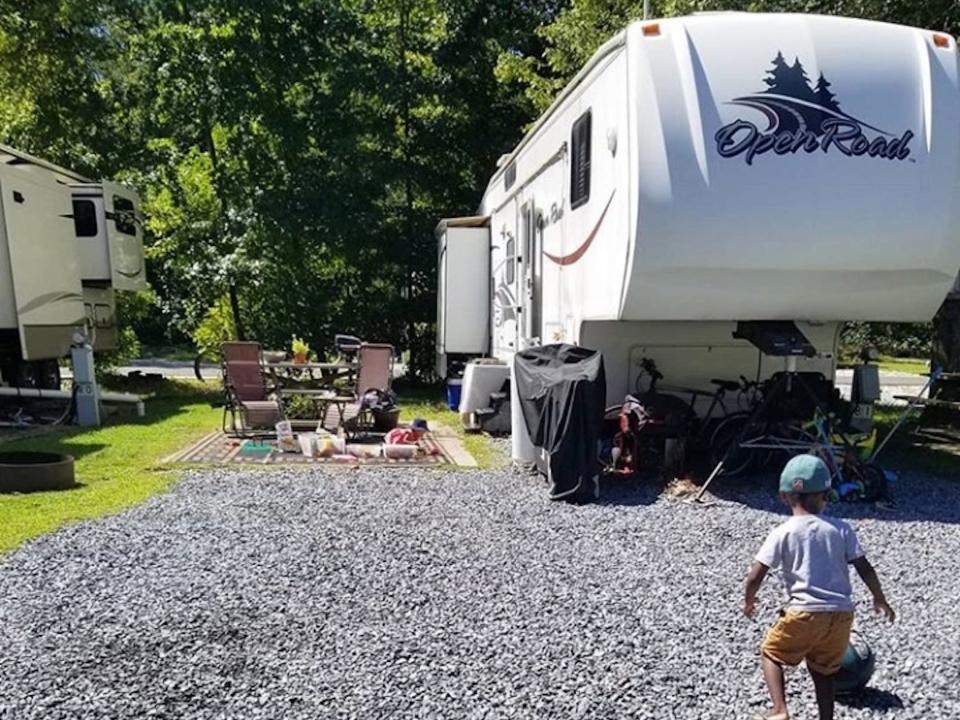
They park their home on campgrounds throughout the US, taking up semi-permanent residences across the country.
When they park on campgrounds, Harrigan said she rarely sees other Black people or people of color that travel full-time as her family does. She's been able to connect with other Black people who live tiny through Facebook groups, but she doesn't see them in real life.
"I have never run into another Black family" on a campground, she told Insider.
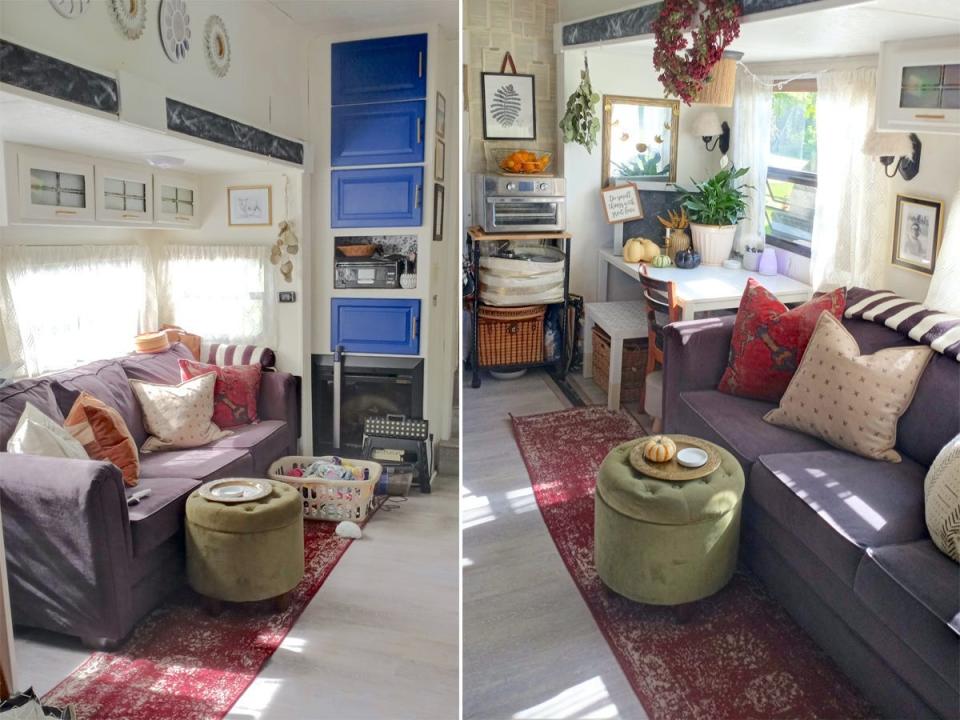
More often than not, her family is surrounded by white people, which doesn't seem to be a coincidence. A quick search on the Instagram explore page for "tiny home" leads to hundreds of thousands of photos of people — the vast majority of whom are white — living in stylish small spaces.
Although people have lived in small spaces for as long as dwellings have existed, it's only in recent years that living small has become a desirable lifestyle, and aesthetic appeal has played a role in its surge in popularity. The design style that's popular in the movement overwhelmingly caters to white people, as modern farmhouse and boho-chic aesthetics are common in tiny homes.
The modern tiny home movement has almost become synonymous with lifestyle influencer culture, which is dominated by white people — many of whom choose to live in small spaces to escape a "normal" life, moving into vans or RVs with the intention of traveling or living off the land around them. Some earn money by blogging or sharing sponsored content about their unique lifestyles.
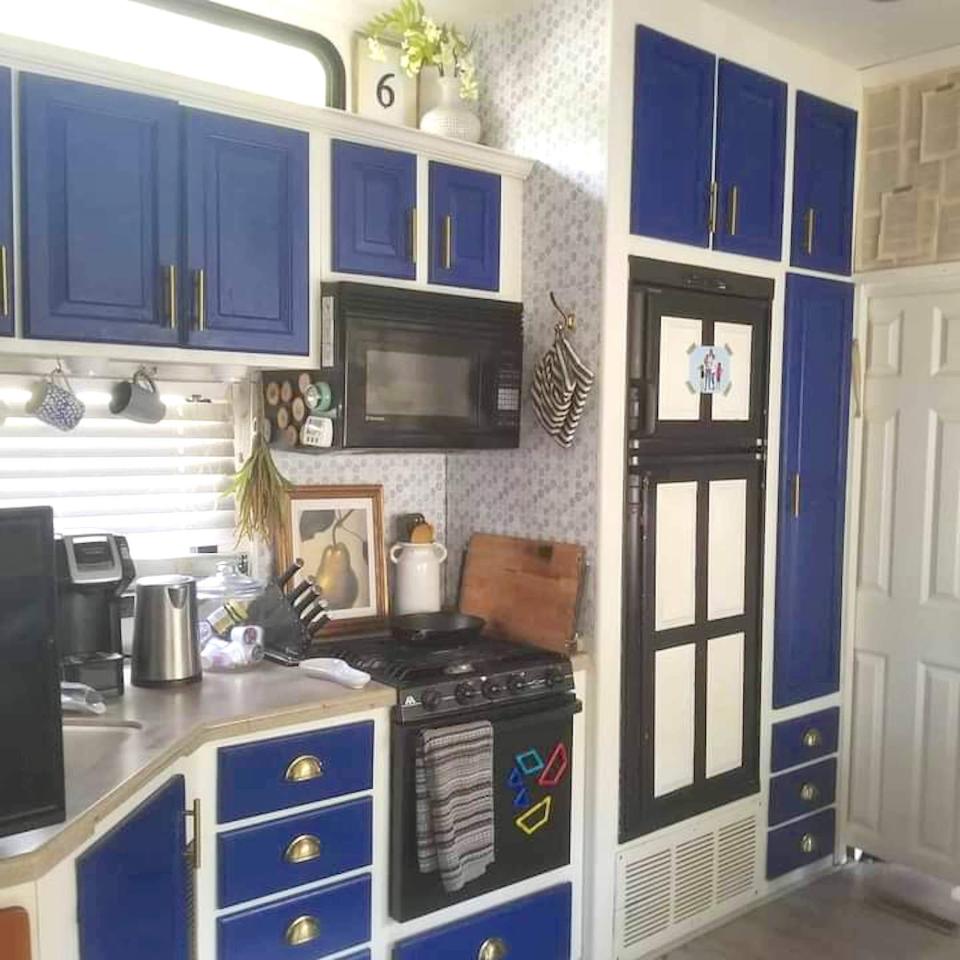
Harrigan thinks Black people aren't exposed to RVs or tiny homes as an option as often as white people are
"I never stepped foot into an RV until we started looking for ours," Harrigan said, adding that she thinks many Black people have similar experiences.
"It was a luxury item, and there's definitely a flexibility gap within the Black community and other communities when it comes to being able to have a luxury item," she added.
As Harrigan said, the wealth gap between white and Black Americans is substantial. As of 2016, the average white family's net worth was 10 times more than that of the average Black family, as Business Insider previously reported. White families' net worth was $171,000 while Black families had a net worth of $17,150, according to the Brookings Institution. That gap remains consistent even among wealthier groups.
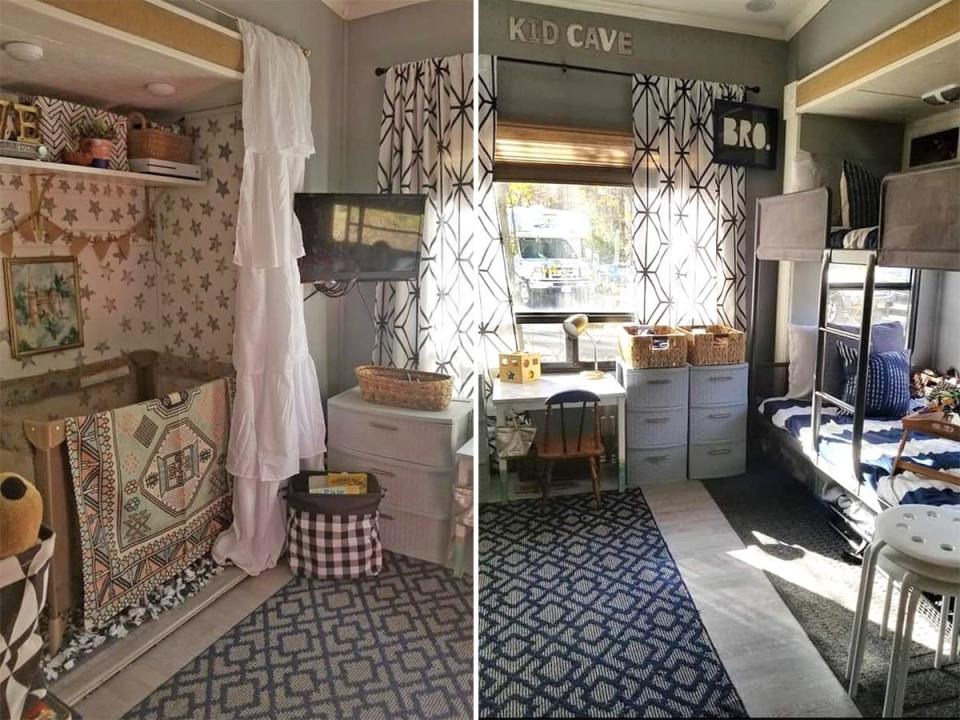
Institutional racism has helped to maintain and widen this gap, putting Black Americans at a disadvantage. Shawn Rochester, author of "The Black Tax: The Cost of Being Black in America," estimates that racism has cost Black people $70 trillion since the start of slavery in America.
And as Harrigan noted, because fewer Black people are wealthy, they have less opportunities for luxury spending on experiences like RVs, making it less likely they would embrace RV life full-time.
The Harrigans operate with caution in their travels because of their skin color
Speaking to Insider, Harrigan said she worries about what would happen to her family if they encountered someone prejudiced and no BIPOC people or allies were there.
Being the only Black people on campgrounds makes the Harrigans vulnerable in a way their white peers aren't.
"We exercise caution at all times, especially when we're traveling down South," Harrigan, who grew up in Mississippi, said.
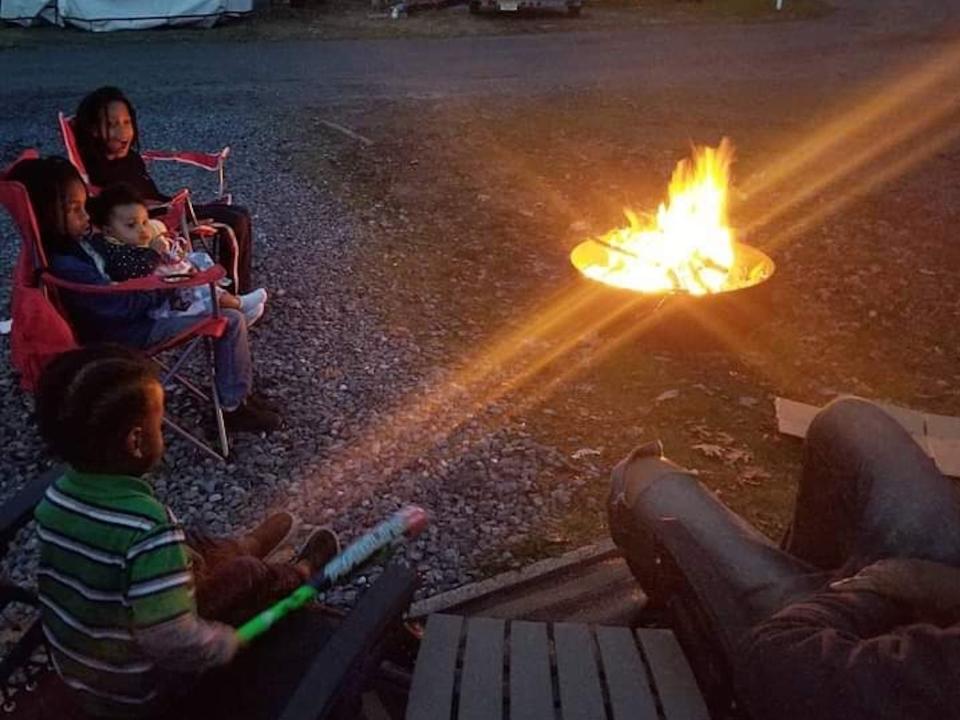
"Although we have been usually the only people of color on campgrounds full time, the RV community has been so neighborly and so kind," she added. "But if I'm being honest, it doesn't take away that it is a little bit uncomfortable sometimes for us."
However, Harrigan also noted that the discomfort she feels isn't unique to being on an RV campground.
"I can only speak for myself, but that's the life of being a minority where we live," she said. "So it's not a new feeling."
Harrigan hopes being transparent about her experience shows people that tiny homes won't make your life perfect
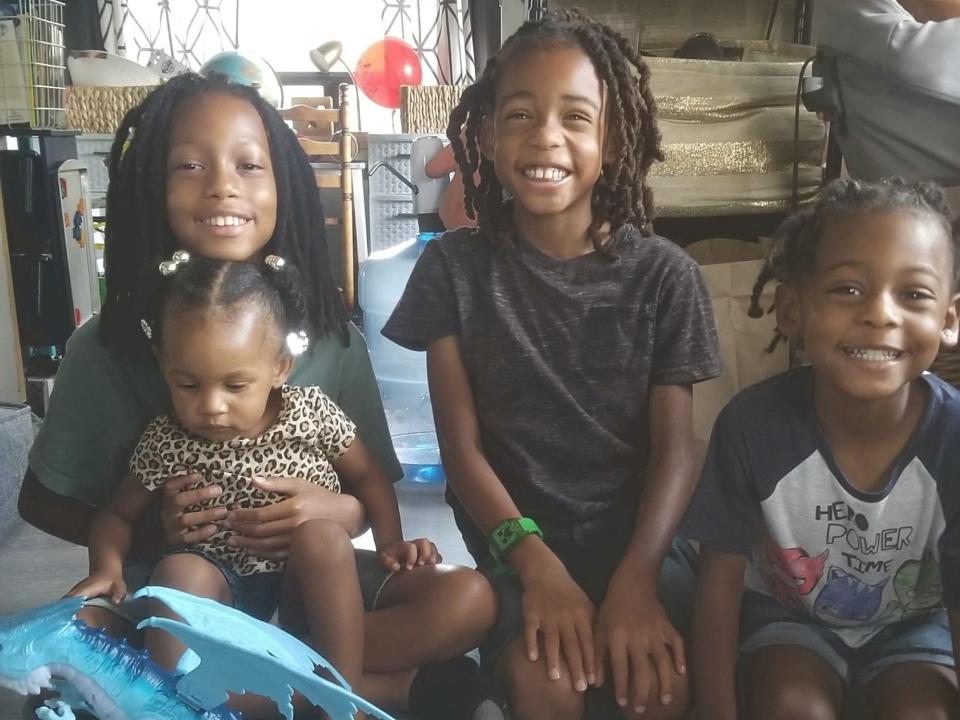
For instance, the Harrigans have faced financial struggles since they downsized, they're often uncomfortable because of a lack of diversity on campgrounds, and it isn't easy to be in a small space with four kids every day.
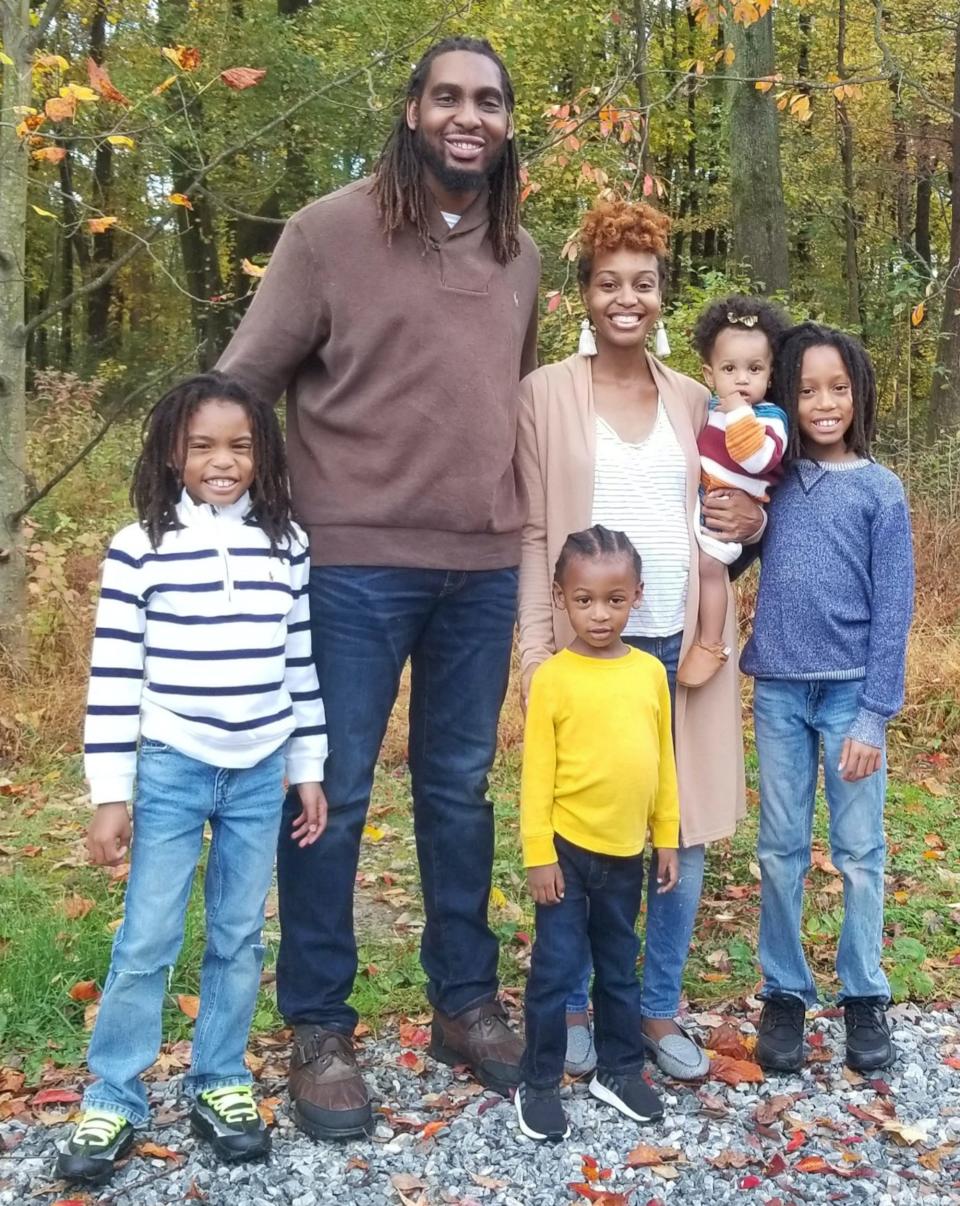
"We chose to live tiny in this RV so that we can have the freedom to go when we want to go," Harrigan said. "But we still are regular people who deal with life."
"Whether it's tiny living or any other situation, I think it's always important to remember the whole conglomerate of different situations that people are in," she advised.
You can read more about the Harrigan family here and follow Floshea Harrigan on Instagram.
Read more:
4 families share how they live, work, and homeschool in tiny houses made from school buses
A family of 4 lives full-time in a 450-square-foot RV that saves them $2,000 a month
A family of 4 moved into a 250-square-foot RV to save money while they build their dream farmhouse
A family of 7 lives full-time in a 429-square-foot RV that has a fireplace and a massive porch
Read the original article on Insider

